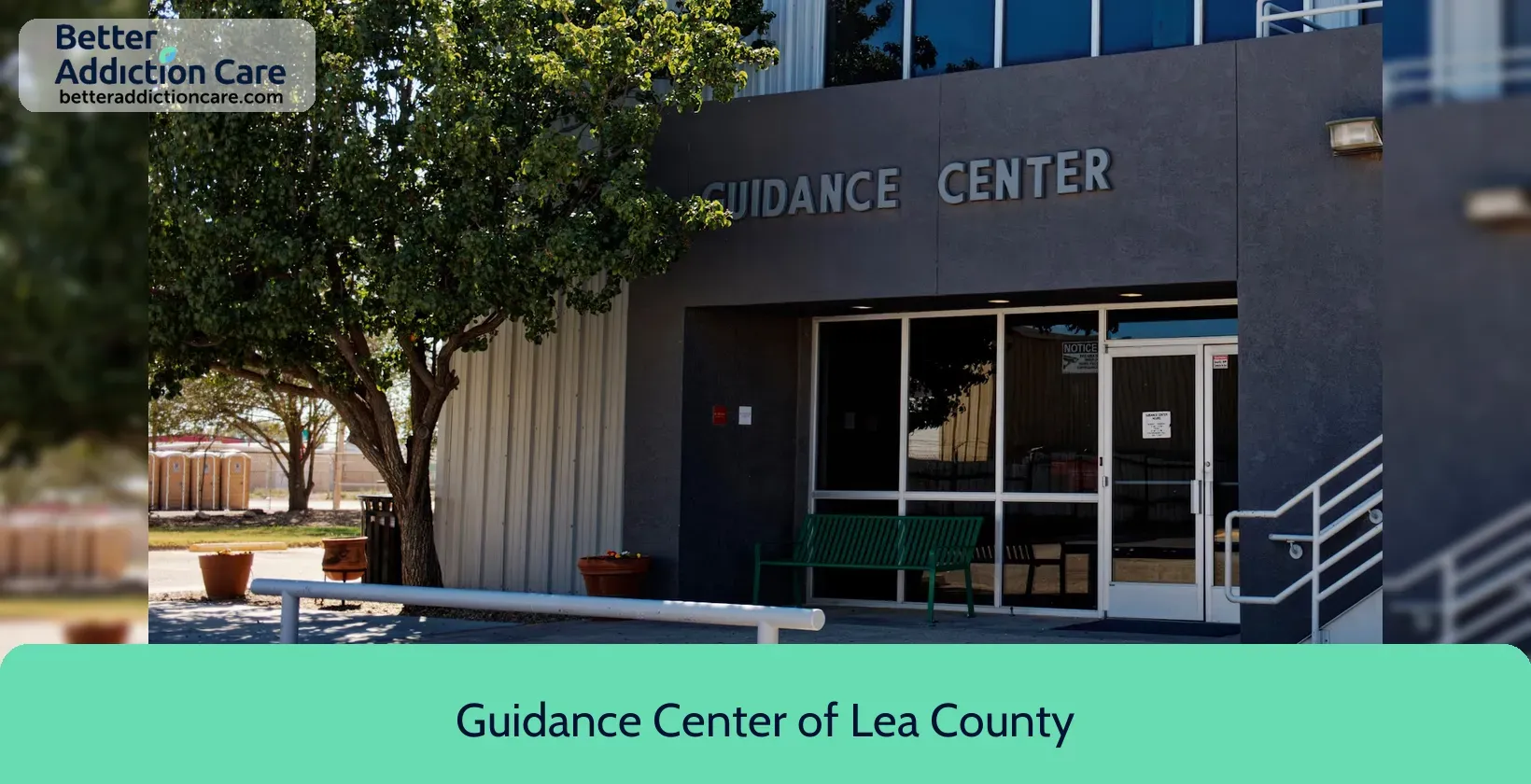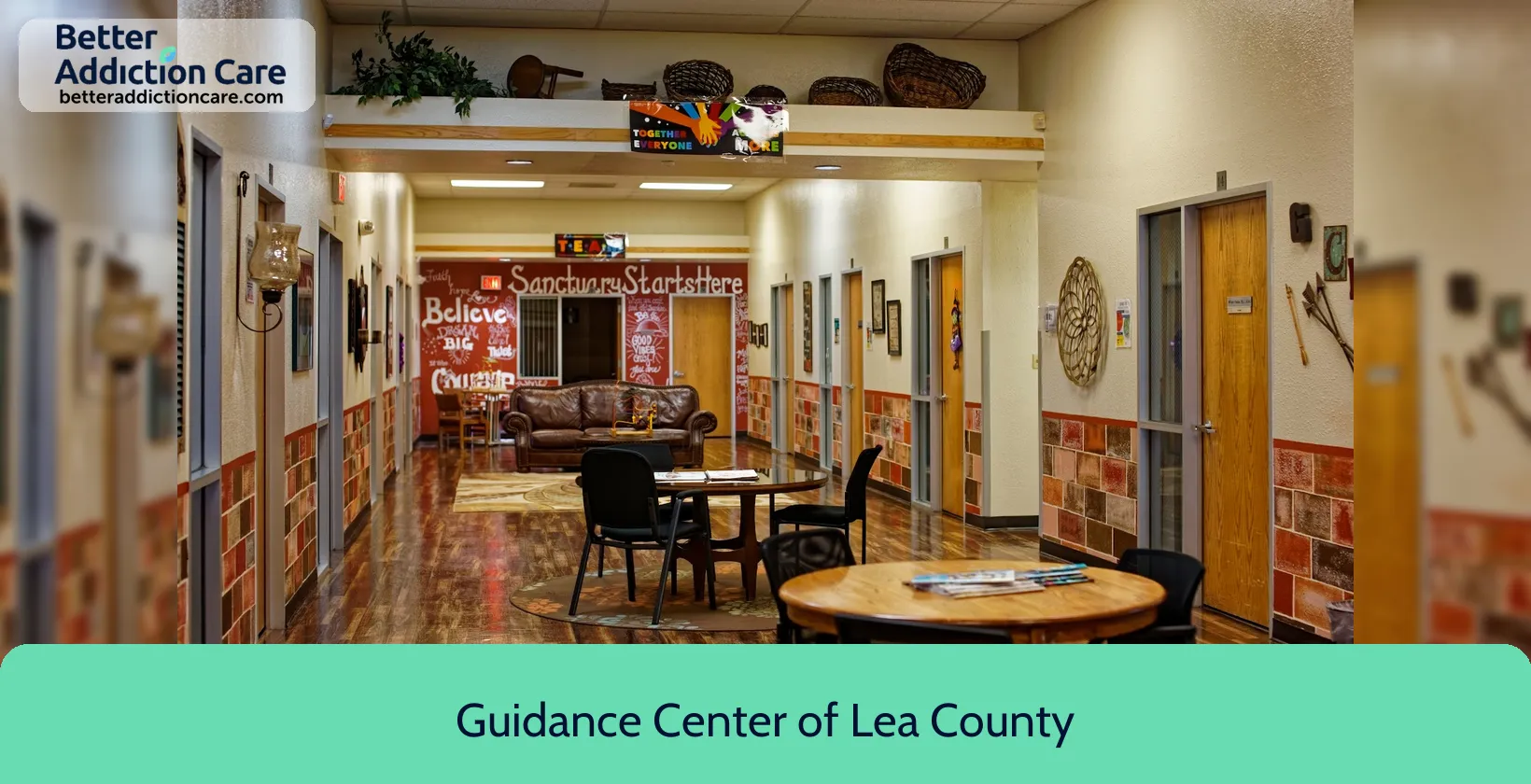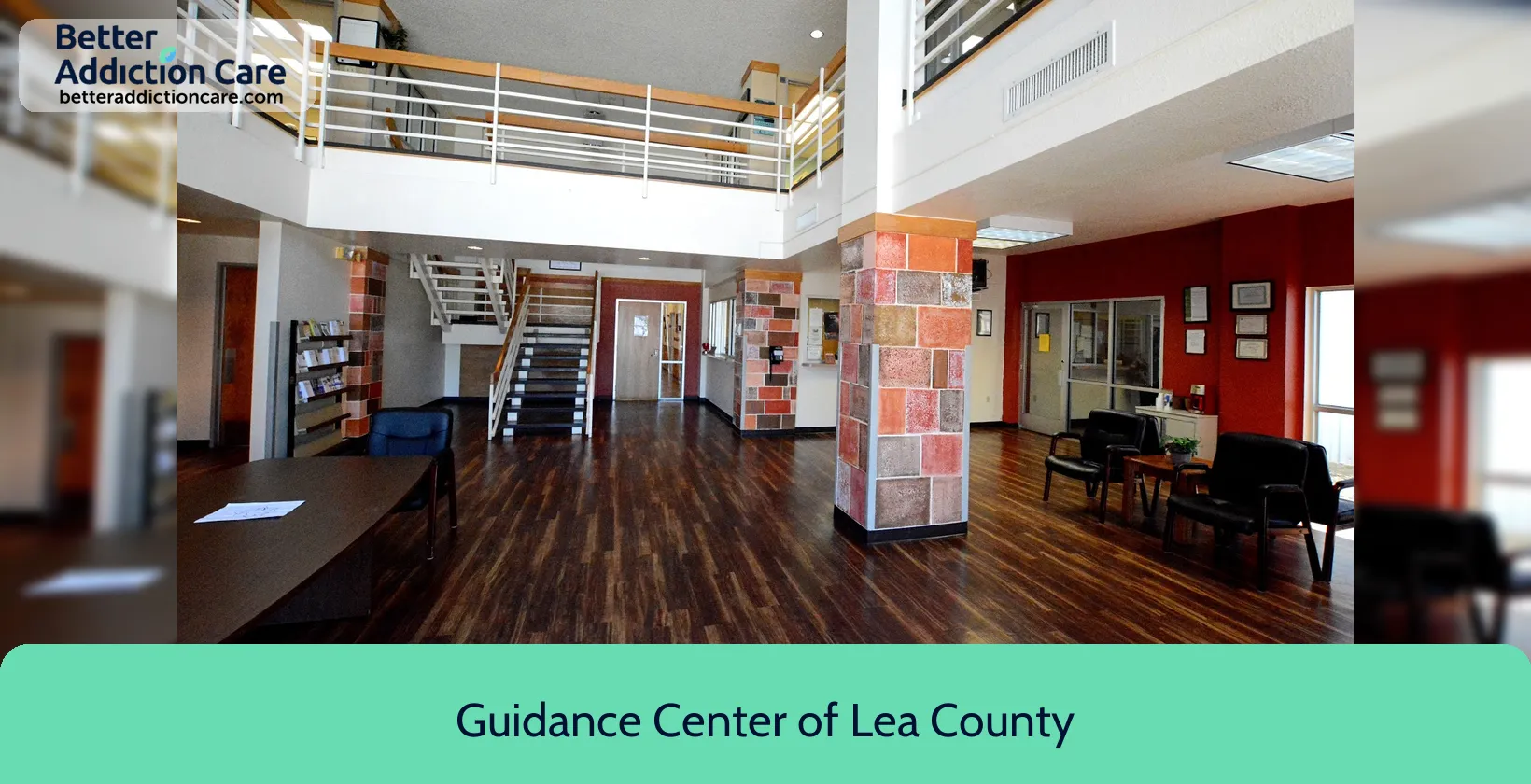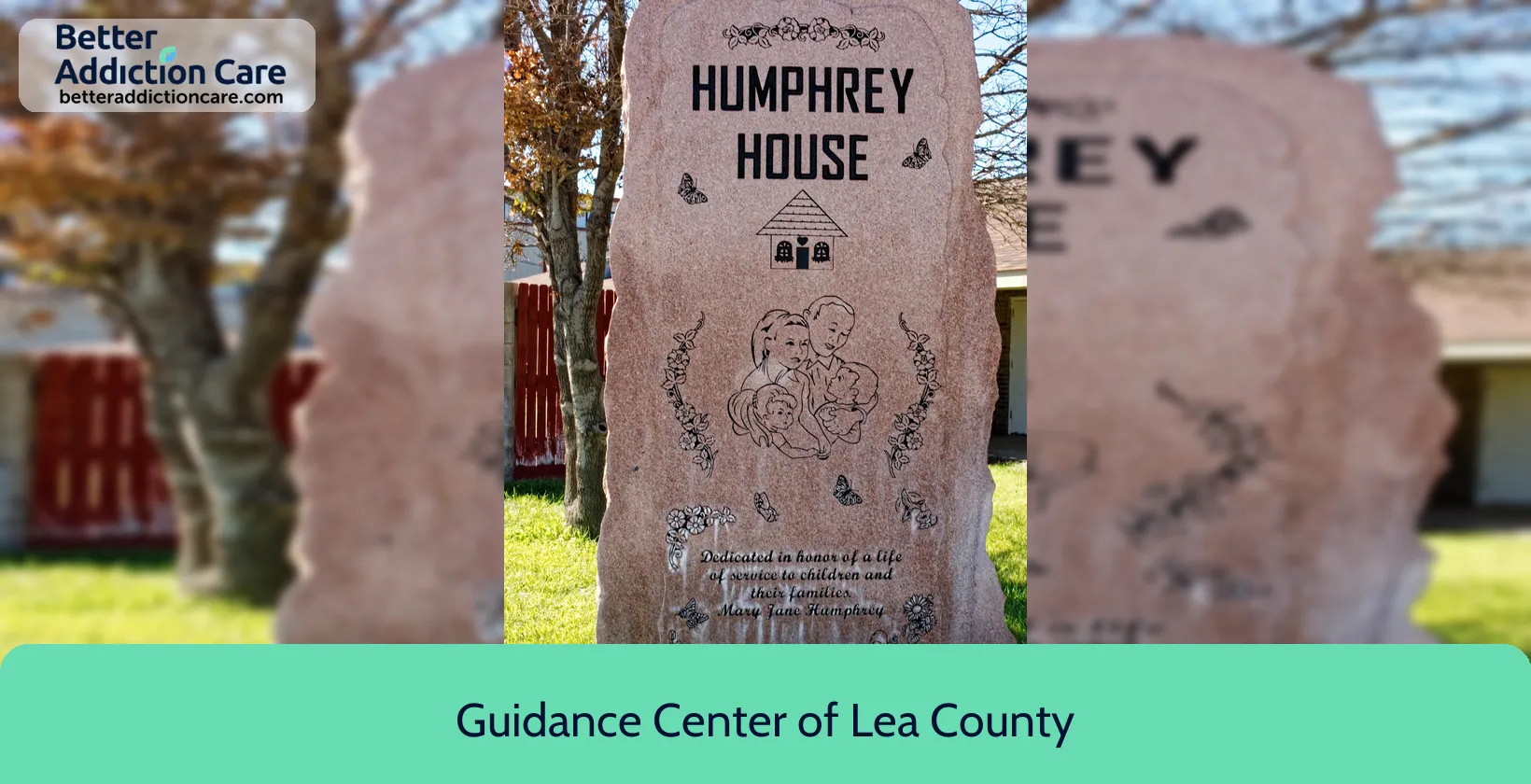Guidance Center of Lea County
Overview
Guidance Center of Lea County is a mental health treatment center for people seeking treatment near Lea County. As part of their treatment modalities for recovery, Guidance Center of Lea County provides family counseling, individual psychotherapy, and nicotine replacement during treatment. Guidance Center of Lea County is located in Hobbs, New Mexico, accepting county or local government funds for treatment.
Guidance Center of Lea County at a Glance
Payment Options
- County or local government funds
- Community Mental Health Block Grants
- Community Service Block Grants
- 638 contracts
- Medicaid
Assessments
- Comprehensive mental health assessment
- Comprehensive substance use assessment
- Screening for tobacco use
- Interim services for clients
- Outreach to persons in the community
Age Groups
- Adults
- Children/adolescents
- Young adults
- Seniors or older adults
- Adolescents
Ancillary Services
- Case management service
- Court-ordered outpatient treatment
- Family psychoeducation
- Illness management and recovery
- Integrated primary care services
Highlights About Guidance Center of Lea County
7.90/10
With an overall rating of 7.90/10, this facility has following balanced range of services. Alcohol Rehabilitation: 9.29/10, Drug Rehab and Detox: 7.54/10, Insurance and Payments: 6.00/10, Treatment Options: 8.79/10.-
Alcohol Rehabilitation 9.29
-
Treatment Options 8.79
-
Drug Rehab and Detox 7.54
-
Insurance and Payments 6.00
Accreditations
Council on Accreditation (COA):
The Council on Accreditation (COA) is a non-profit that provides accreditation to human services organizations to ensure they meet high standards in service delivery. The accreditation process involves evaluating the organization's policies, practices, and services to meet specific standards.
Treatment At Guidance Center of Lea County
Treatment Conditions
- Mental health treatment
- Substance use treatment
- Co-occurring Disorders
- Alcoholism
Care Levels
- Outpatient
- Outpatient methadone/buprenorphine or naltrexone treatment
- Intensive outpatient treatment
- Regular outpatient treatment
- Aftercare
Treatment Modalities
- Family counseling
- Individual psychotherapy
- Nicotine replacement
- Group counseling
- Experiential Therapy
Ancillary Services
Languages
- Sign language services for the deaf and hard of hearing
- Spanish
Additional Services
- Pharmacotherapies administered during treatment
- Mentoring/peer support
- Drug or alcohol urine screening
Special Programs
- Children/adolescents with serious emotional disturbance (SED)
- Clients who have experienced trauma
- Clients with co-occurring mental and substance use disorders
- Veterans
- Active duty military
Contact Information
Read our Most Recent Article About Drug Addiction
DISCLAIMER: The facility name, logo and brand are the property and registered trademarks of Guidance Center of Lea County, and are being used for identification and informational purposes only. Use of these names, logos and brands shall not imply endorsement. BetterAddictionCare.com is not affiliated with or sponsored by Guidance Center of Lea County.












